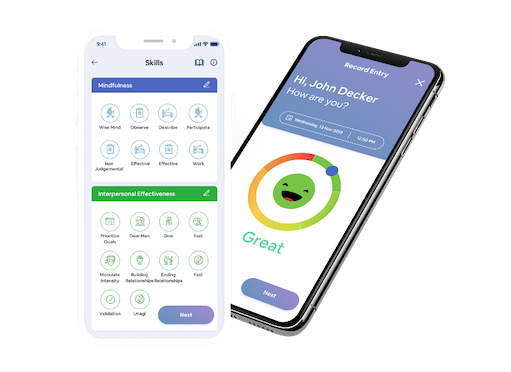Eating disorders do not discriminate, i.e., they can strike any gender, race, ethnicity, or socioeconomic background, according to the Eating Disorders Coalition, the organization for eating advocacy and awareness. The National Association of Anorexia Nervosa and Associated Disorders says that at least 30 million Americans have eating disorders, and every 62 minutes, at least one person dies out of it. Despite the commonness, the myths associated with it abound in nature. Such as that a person with an eating disorder is severely overweight or its a choice to overeat. It is not!
A retrospective evaluation of US hospitals between 2013-2015 provided elaborative characteristics of people with eating disorders. This analysis indicated a broad range of mindless eating and binge-eating along with co-morbid psychiatric diagnoses among them. The initial behavioral eating disorder outcomes revealed increased body weight, relapse of intense emotions, and finally, admitted to the program of Dialectical Behavioral Therapy.
The implementation of DBT integrated with mindfulness and emotion regulation has shown positive outcomes among many people. Eating disorders typically commence due to invalidating environment conditions that fail to understand one's life complexities. This further reinforces a person's painful feelings and turns them into food. The rationale behind applying DBT is that it's based on the affect regulation model to cope with emotional vulnerability, unlike other approaches.
What is Dialectical Behavior Therapy?
DBT is a specific type of cognitive-behavioral treatment developed in the late 1970s by Marsha Linehan, Ph.D., to treat chronically suicidal individuals diagnosed with borderline personality disorder (BPD). It is now recognized as a treatment for multi-problem behaviors that occurs due to difficult underlying emotions.
While treating EDs, this program focuses on emotional dysregulation responsible for triggering or augmenting distress eating behaviors and promotes acceptance of patients themselves. The dialectical view advised in Health Coach by Swasth, an online emotional wellness coach, appeals to many as they strive for recovery - they acknowledge their emotions and work towards being attentive and productive.
Learning New Skills In Dialectical Behavior Therapy
Imagine living in a world where you can readily accept yourself and watching yourself change and grow - where you can experience several emotions and contain yourself from acting on it. These seemingly opposite situations can exist unitedly when you learn the skills promoted byDBT - mindfulness, emotion regulation, interpersonal effectiveness, and diaphragmatic breathing.

Mindfulness is when you amalgamate the intellectual and emotional output into making decisions, I.e., thinking with the wise mind and adopting a nonjudgmental stance.
Emotion regulation teaches you to navigate different feelings and make yourself less vulnerable in the first place to extreme shifts in emotions.
Interpersonal effectiveness involves the mastery of doing away with the perfectionistic thinking like "right or wrong", "black or white mindset" and adopting assertive techniques like seeking help or expressing disapproval.
Diaphragmatic breathing is the practice of deep breathing to lower your stress. It helps you facilitate mindfulness and being fully aware of your emotional experience while staying focused on it.
Does DBT work?
In the 2001 study, people with binge-eating disorders participated in the DBT program and experienced a significant decrease in symptoms, with 89% being symptom-free when the study ended, and 56% became symptom-free after six months.
A study analyzing the impact of DBT on women with anorexia nervosa found that the DBT program resulted in increased emotion regulation and a meaningful reduction in eating disorder symptoms.
Research shows that people with behavioral eating disorders have benefited even more from the solution-focused nature of DBT when associated with Family-Based Treatment. The combined effect of these two psychodynamic therapies allows them to conclude sessions with concrete skills in their behavioral toolboxes to cope with emotional vulnerability, thereby avoiding behaviors like binge-eating and purging.

Conclusion
The DBT approach can be implemented in treating various mental health disorders. Through DBT, individuals acquire the ability to learn self-awareness, ride out black-or-white/ perfectionistic thinking, deal with inner conflicts and stress better, and control negative thoughts while accepting ongoing emotions. DBT has been reported to be an effective psychotherapy for mental health issues such as depression, traumatic stress, anxiety disorders, and self-harm behaviors. Recent research studies have also shown the significance of DBT in treating survivors of sexual abuse and drug dependency as well as eating disorders.
DBT Coach

To help you deal with dysfunctional behaviors at ease, we at Swasth have developed DBT Coach app where you can learn and practice DBT skills with intuitive tools.
We also have a coaching platform where you can get help with your eating disorders from our trained DBT Coaches using structure coaching programs. If you need more info you can reach us at info@resiliens.com




